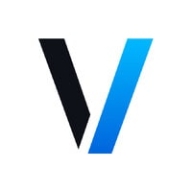

Veracode and GitGuardian compete in the application security category, with GitGuardian appearing to have the upper hand due to its robust secrets detection and minimal false positives, which facilitate quicker remediation.
Features: Veracode excels in static, dynamic, and software composition analysis, supporting a wide range of programming languages and integrating into developers' IDEs. GitGuardian is renowned for its real-time secrets detection, automated notifications, and low false positives, which streamline the remediation process.
Room for Improvement: Veracode users report issues with false positives and integration difficulties, particularly with older systems and certain frameworks, suggesting a need for improved reporting and API integrations. GitGuardian could enhance its user interface and developer environment integrations while expanding its secret detection capabilities.
Ease of Deployment and Customer Service: Veracode offers deployment flexibility across various cloud environments, with responsive technical support. GitGuardian provides comparable deployment options and emphasizes user accessibility, though users suggest direct communication improvements.
Pricing and ROI: Veracode's pricing is higher, reflecting its comprehensive services, providing value for large deployments. GitGuardian offers competitive pricing suitable for smaller teams, highlighting its real-time secrets detection. Both platforms justify their costs through distinct security benefits.
I can certainly say that we have saved significant time and resources in terms of people and automation.
The majority of our incidents for critical detectors and important secret types are remediated automatically or proactively by developers through GitGuardian's notification system, without security team involvement.
The scanners of Veracode bring status of the weaknesses in the current infrastructure. It scans and provides reports regarding the servers, the network, and the applications running on those servers.
Regarding price, the evaluation should focus on how efficiently they will recover their investment, considering the time saved through the use of Veracode Fix, for example, and the ability to fix code at dev time compared to the problems faced when fixing after the product is already deployed.
We did see a return on investment with Veracode, as we segregated our remediation efforts, which reduced our time to delivery as well as the number of engineers needed to help us in delivering a secure solution.
It effectively helps us with credentials security and has been performing satisfactorily.
I would rate their technical support a nine out of ten.
I would rate the technical support as excellent.
Access to the engineering team is crucial for faster feedback on the product fix process.
I have communicated with the technical support of Veracode a couple of times, and this was a really great experience because these professionals know their material.
They share detailed information via email, including screenshots or further clarification about the issue.
In terms of scalability, I would rate it around a ten out of ten, as it handles all the repositories and commit activity we have.
I would rate it a ten out of ten for scalability.
Currently, what GitGuardian Platform is doing works effectively.
Cloud solutions are easier to scale than on-premise solutions.
It has a good capacity to scale effectively.
Implementing these features into our normal CI/CD was good, so I can say that scalability is really good.
We set up a lot of the repository, so GitGuardian is a required check.
The SaaS platform has experienced two significant moments of downtime or instability in the last six months, requiring notices and retrospectives.
I would rate the stability of the GitGuardian Platform as excellent with no downtimes.
If the Veracode server is down, we experience many issues during the scan.
It's not that easy to onboard, but once they have been onboarded on the platform, and the pipeline configured alongside the product configured, it works effectively.
Another thing that would be good to see is some more metrics on the usage of the GitGuardian pre-push hooks.
The self-healing activity by developers isn't reflected in the analytics, requiring us to collect this data ourselves.
We are looking for better metrics and audit data, wanting more features such as knowing which users are creating the most secrets or committing the most secrets, what repository, what directory, and who is not checking in secrets.
If it could be integrated directly with code repositories such as Bitbucket or GitHub, without the need to create a pipeline to upload and decode code, it would simplify the code scan process significantly.
We had issues with scanning large applications. Scanning took a lot of time, so we kept it outside the DevOps pipeline to avoid delaying deployments.
A nice addition would be if it could be extended for scenarios with custom cleansers.
Overall, the secret detection sector is expensive, but we are happy with the value we get.
It's fairly priced, as it performs a lot of analysis and is a valuable tool.
It's not the most expensive solution.
Overall, Veracode's pricing is lower and more scalable than many alternatives in the market.
If there's a security gap, you'll never know the cost or effect.
One of the best features of the solution is the ability to use pre-push hooks.
A high number of our exposures are remediated by developers before security needs to step in, as the self-healing playbook process engages them automatically.
GitGuardian Platform performs the capability to detect secrets in real time exceptionally, as it activates from the commit and can detect it immediately.
It offers confidence by preventing exposure to vulnerabilities and helps ensure that we are not deploying vulnerable code into production.
The best features in Veracode include static analysis and the early detection of vulnerable libraries; it integrates with tools such as Jenkins.
It fixes issues directly in the IDE while you're doing it.
| Product | Market Share (%) |
|---|---|
| Veracode | 6.1% |
| GitGuardian Platform | 1.0% |
| Other | 92.9% |

| Company Size | Count |
|---|---|
| Small Business | 10 |
| Midsize Enterprise | 9 |
| Large Enterprise | 13 |
| Company Size | Count |
|---|---|
| Small Business | 70 |
| Midsize Enterprise | 44 |
| Large Enterprise | 113 |
GitGuardian is a comprehensive platform focused on enhancing Non-Human Identity security by integrating Secrets Security and Secrets Observability to detect and manage secrets across development environments.
As cybersecurity threats increasingly target NHIs like service accounts and applications, GitGuardian offers a robust solution by supporting over 450 types of secrets and deploying honeytokens for additional defense. Trusted by leading organizations and developers, its monitoring and quick alert system enable effective detection and management of sensitive data, strengthening operational security across platforms.
What are the key features of GitGuardian?In the tech industry, GitGuardian is employed to safeguard APIs and sensitive credentials across code repositories like GitHub. Companies benefit from instant alerts and integrations with tools like Slack, effectively managing risks and enhancing security policies. While popular in sectors dependent on development agility, there is room for further improvement in customization and integration to meet specific industry needs.
Veracode is a leading provider of application security solutions, offering tools to identify, mitigate, and prevent vulnerabilities across the software development lifecycle. Its cloud-based platform integrates security into DevOps workflows, helping organizations ensure that their code remains secure and compliant with industry standards.
Veracode supports multiple application security testing types, including static analysis (SAST), dynamic analysis (DAST), software composition analysis (SCA), and manual penetration testing. These tools are designed to help developers detect vulnerabilities early in development while maintaining speed in deployment. Veracode also emphasizes scalability, offering features for enterprises that manage a large number of applications across different teams. Its robust reporting and analytics capabilities allow organizations to continuously monitor their security posture and track progress toward remediation.
What are the key features of Veracode?
What benefits should users consider in Veracode reviews?
Veracode is widely adopted in industries like finance, healthcare, and government, where compliance and security are critical. It helps these organizations maintain strict security standards while enabling rapid development through its integration with Agile and DevOps methodologies.
Veracode helps businesses secure their applications efficiently, ensuring they can deliver safe and compliant software at scale.
We monitor all Application Security Tools reviews to prevent fraudulent reviews and keep review quality high. We do not post reviews by company employees or direct competitors. We validate each review for authenticity via cross-reference with LinkedIn, and personal follow-up with the reviewer when necessary.